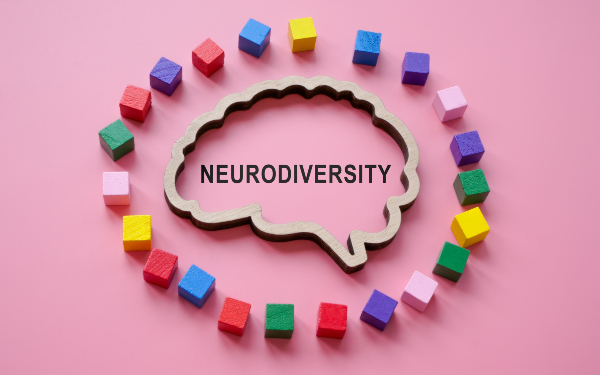
By Deb Solomon
Recently councils and other employers of social workers in the UK have been encouraged to sign up to a new pledge to celebrate neurodiversity in the profession.
But why?
At the moment there is a patchy picture of acceptance for neurodivergent social workers, those with conditions – or neurotypes – such as autism, attention deficit hyperactivity disorder (ADHD), dyslexia, dyscalculia, dyspraxia or obsessive compulsive disorder (OCD).
Some employers value every member of staff and have workplaces that are psychologically safe spaces for neurodivergent social workers to be themselves.
Other practitioners are not so lucky and are working hard to gain acceptance among their colleagues and managers.
The value of a more inclusive workplace
Tackling this lottery is important, not just because employers should treat all of their staff well, but also because creating more inclusive workplaces means we can attract more social workers into the profession and employers can retain their hard-working staff.
And it also has benefits for the public too.
A major benefit of a neurodiverse workforce is that services are able to provide more understanding and a better experience to the people who need their help. In many cases, social work clients who are neurodivergent won’t have had this unless their social worker also happens to be neurodivergent.
The first step to doing this is to ensure that employers become more neuro-inclusive, which is where the pledge comes in.
Recognising the contribution of neurodivergent social workers
The pledge has been created by a group of neurodivergent social workers with the backing of the Social Workers Union (SWU). It aims to encourage employers to recognise the contribution neurodivergent social workers bring to their roles and commit to take steps towards a neuro-inclusive workplace.
Our pledge will give employers of social workers an opportunity to promote acceptance and understanding of neurodiversity among all members of staff. We will also expect signatories of the pledge to create a neuro-inclusive culture of appreciation, celebration and belonging in their organisations.
On a practical level, we will expect signatories to identify a minimum of two named individuals who will support the pledge within the organisation. One must be a strategic lead and one must be a neurodivergent social worker. We also expect the employer to commit to maintaining a “champion” role among staff and work with us to develop evidence of commitment to the pledge, including evaluation of impact.
Another area we are keen to explore is how employers are able to take direct action to create psychologically safe work environments that empower the neurodivergent members of our profession to thrive.
What employers can do
These areas are important to ensure that changes are sustainable and co-produced, keeping the lived experience of the neurodivergent social workers at the core. We know that for many employers, this will be a journey and our intention is to help them along the way.
Some concrete examples of action employers can take is the support of staff network groups, allowing workers to create a space for peer support and active awareness raising. Another example could be mandatory training for supervisors and managers highlighting how to ensure the workplace is neuro-inclusive.
By undertaking the pledge and actively working towards inclusion, then employers and universities alike will remove existing stigmas and barriers to social work, and will allow room for neurodivergent people to flourish and thrive.
Organisations who are interested in finding out more about signing the pledge can visit the Social Workers Union website.
Deb Solomon works as a social worker in Derbyshire, is chair of the British Association of Social Workers’ Neurodivergent Social Workers Special Interest Group and is one of the social workers behind the pledge


 Bournemouth, Christchurch and Poole
Bournemouth, Christchurch and Poole  Hampshire County Council
Hampshire County Council  Lincolnshire County Council
Lincolnshire County Council  Norfolk County Council
Norfolk County Council  Northamptonshire Children’s Trust
Northamptonshire Children’s Trust  South Gloucestershire Council
South Gloucestershire Council  Wiltshire Council
Wiltshire Council  Wokingham Borough Council
Wokingham Borough Council  Children and young people with SEND are ‘valued and prioritised’ in Wiltshire, find inspectors
Children and young people with SEND are ‘valued and prioritised’ in Wiltshire, find inspectors  How specialist refugee teams benefit young people and social workers
How specialist refugee teams benefit young people and social workers  Podcast: returning to social work after becoming a first-time parent
Podcast: returning to social work after becoming a first-time parent  Podcast: would you work for an inadequate-rated service?
Podcast: would you work for an inadequate-rated service?  Family help: one local authority’s experience of the model
Family help: one local authority’s experience of the model  Workforce Insights – showcasing a selection of the sector’s top recruiters
Workforce Insights – showcasing a selection of the sector’s top recruiters 

 Facebook
Facebook X
X LinkedIn
LinkedIn Instagram
Instagram
Comments are closed.